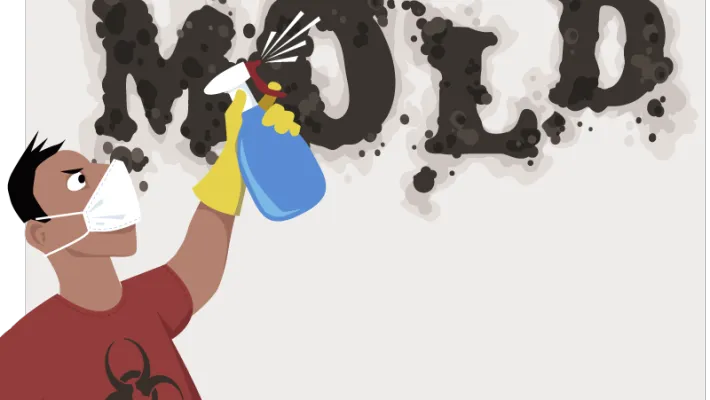Mold allergies exist year-round and the symptoms are similar to seasonal allergies. Hence, the people struggling with year-round allergy symptoms will be amazed to learn that the origin of their problems could be inside their house. Allergy symptoms such as sneezing, coughing, runny nose and itchy, watery eyes, and asthma symptoms, like wheezing and tightness of chest, that extend beyond the traditional spring and fall allergy seasons might indicate that the source is mold. Mold is a fungus that can exist both outside and inside the home. It thrives in warm and humid environments and grows any time throughout the year. Although, Treasure Valley does have mold issues, but they are less problematic because of dry weather. There are several hundred kinds of molds. The most common allergy-causing molds include Alternaria, Aspergillus, Cladosporium and Penicillium. Allergy to mold means that your immune system is sensitive to a specific mold spore and it treats them as foreign. Inhalation of these mold spores initiates a reaction in the immune system causing allergy and asthma symptoms such as sneezing, coughing, wheezing, runny nose and itchy watery eyes. A board certified allergist can diagnose whether mold is responsible for your symptoms. Skin prick tests give reliable results in just 15 – 20 minutes. A person with healthy and strong immune system doesn’t have serious health issues secondary to mold, however, exacerbation of allergy and asthma symptoms can impair an individual’s quality of life significantly. In mold-sensitive individuals, avoiding exposure to mold is the best way to manage their symptoms. Here are some of the steps outlined by the American Academy of Allergy, Asthma and Immunology, Centers for Disease Control and Prevention and the Environmental Protection Agency to help reduce the symptoms in mold- sensitive individuals.
Avoidance tips include:
- Stay indoors on days when mold counts are high. Like “The Allergy Group” on Facebook or visit our website to know periodic pollen and mold counts in Treasure Valley.
- Keep away from uncut fields and avoid raking leaves.
- Take a shower after coming indoors. This will wash out mold spores
- Eliminate mold from your home by fixing leaking faucets and pipes.
- Reduce the humidity in your home. Be sure your indoor humidity stays below 60 percent.
- Remove basement carpeting and replace with linoleum or concrete flooring that will not retain moisture.
- Clean mold off walls using a vinegar solution.
In addition to managing symptoms by avoidance, a board- certified allergist may suggest some over the counter or prescription medications to treat your asthma and allergy flares. Allergen Immunotherapy (allergy shots) is also useful for treatment of allergy to certain kind of molds. This treatment provides long-term relief of symptoms by building a natural immunity to mold, hence reducing the dependency or need for allergy and asthma medications. Live Better. Breathe Better. Call 208-377-4000 or fill our online appointment form to schedule an appointment at The Allergy Group.


